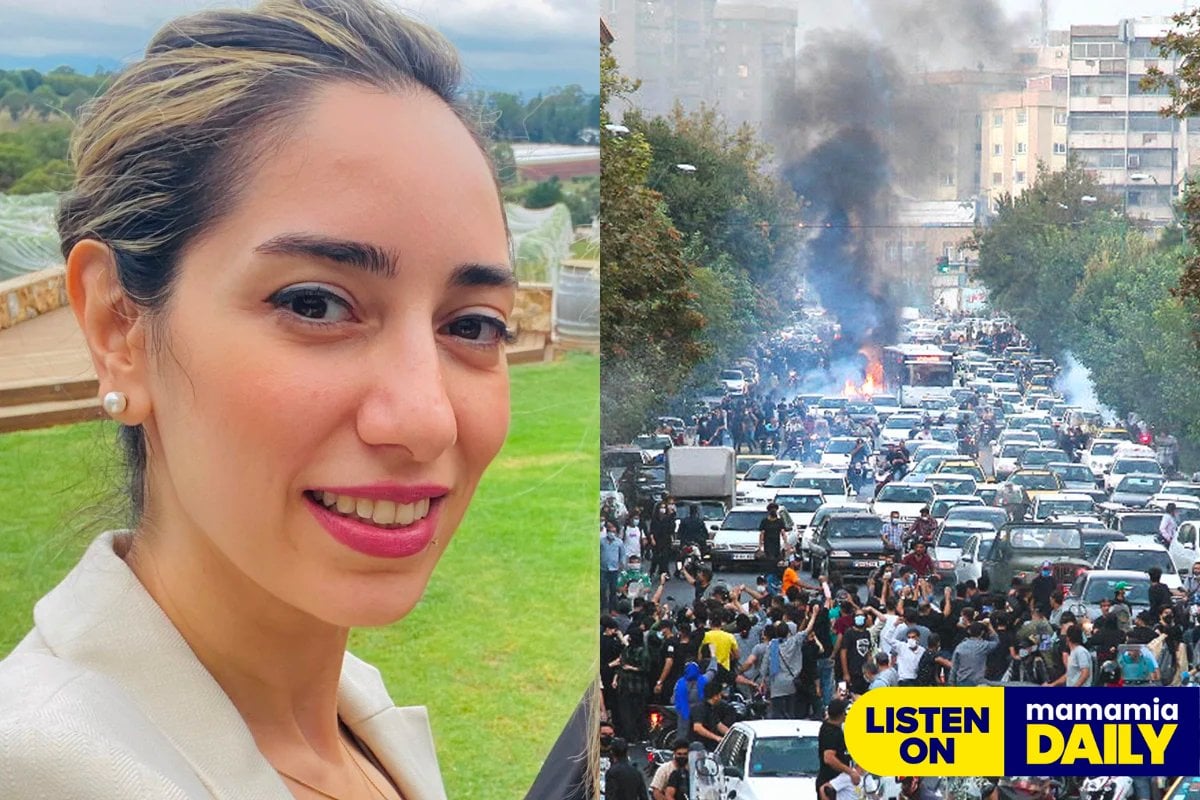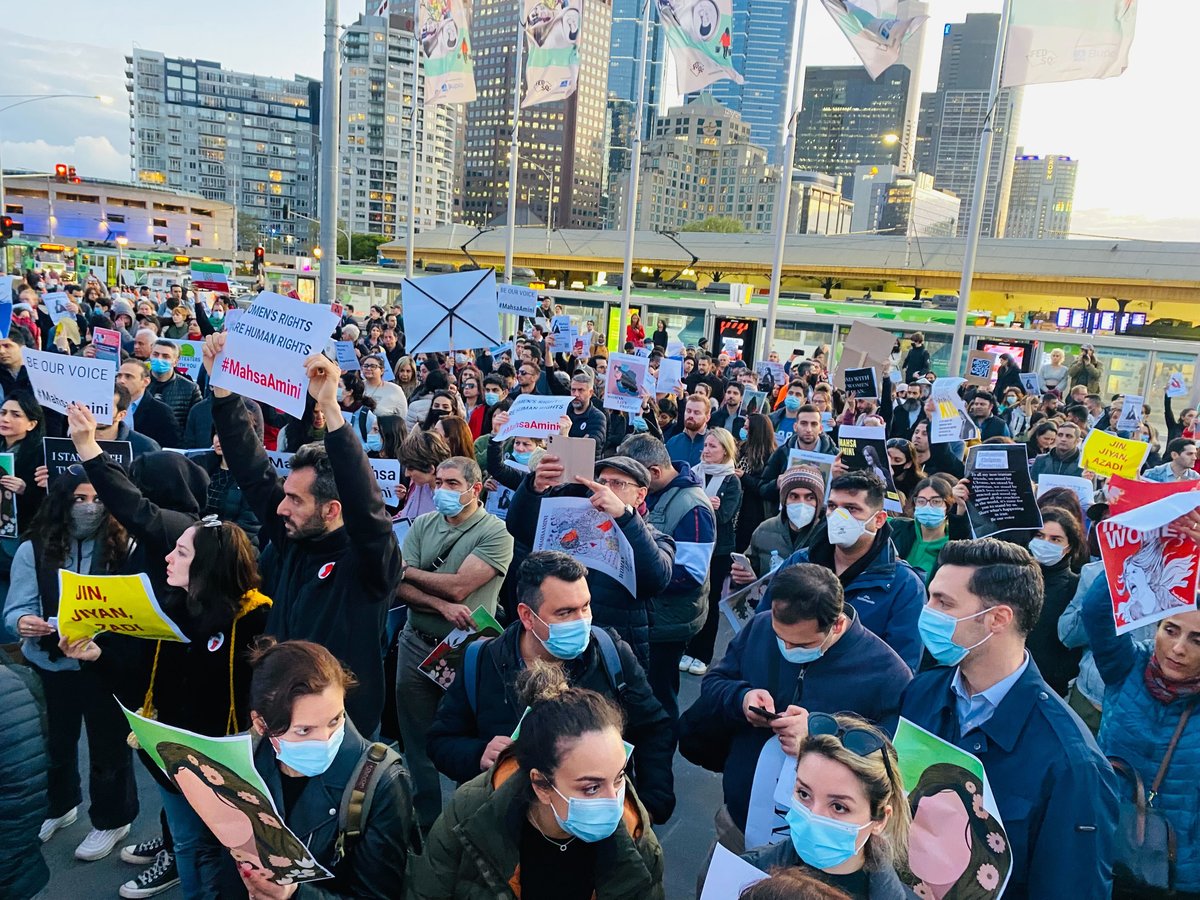
Listen to this story being read by Brielle Burns, here.
As Setareh describes her fear for her family and friends back home, she tells me she can feel a physical pain in her chest.
"I'm scared for everyone back in Iran. And I'm so sad about people who are dying and trying to just get what they want," she says.
"My heart is beating from the morning that I wake up to midnight... I wish I can do something."
Right now, hundreds are flooding the streets of Iran. Their voices loud, they gather in major cities across the country, making their presence known. They're angry. They're fearless. They have nothing left to lose.
Watch: What's happening in Iran? Mamamia explains. Post continues after video.
Setareh's friend was caught up in a tear gas attack while protesting on the streets of Tehran a few days ago.
"[The police] threw the tear [gas] and she was blinded for a while," Setareh, who was born in Iran and lives in Melbourne, told Mamamia.
"Everyone else was trying to help her get back on her feet and just run away."
Tear gas is just one of the weapons police are using to quell protests, which have spread to more than 80 cities over the past two weeks.

